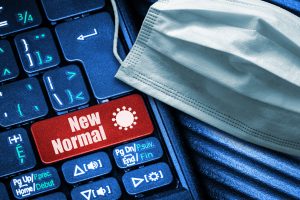 If 2020 was the year of the pandemic, 2021 appears to be shaping up to be the year of “returning to normal.” So far, most coverage disputes related to COVID-19 have been reactions to direct losses caused by the virus and related measures (i.e., relating to business interruption or event cancellation). In the upcoming months and years, however, many businesses will have to make proactive decisions on how to return to work. It is important for businesses to understand how those decisions may impact a variety of potential insurance coverages, including possible D&O coverage, as this post will discuss. Additionally, now that insurance companies have a better understanding of the types of risks involved with COVID-19, coverage terms and exclusions in policies issued after the pandemic may become drastically different.
If 2020 was the year of the pandemic, 2021 appears to be shaping up to be the year of “returning to normal.” So far, most coverage disputes related to COVID-19 have been reactions to direct losses caused by the virus and related measures (i.e., relating to business interruption or event cancellation). In the upcoming months and years, however, many businesses will have to make proactive decisions on how to return to work. It is important for businesses to understand how those decisions may impact a variety of potential insurance coverages, including possible D&O coverage, as this post will discuss. Additionally, now that insurance companies have a better understanding of the types of risks involved with COVID-19, coverage terms and exclusions in policies issued after the pandemic may become drastically different.
Articles Posted in Coronavirus (COVID-19)
Reminder: If You Have a COVID-19 Insurance Claim, Be Aware of Impending Policy Deadlines
 The United States declared a national emergency in response to COVID-19 on March 13, 2020, and states quickly followed with stay-at-home orders that impacted businesses and institutions nationwide. It has now been nine full months since the pandemic emerged in the United States and businesses began to shut down in the face of contamination and civil authority orders effecting restrictions on access to and use of their premises.
The United States declared a national emergency in response to COVID-19 on March 13, 2020, and states quickly followed with stay-at-home orders that impacted businesses and institutions nationwide. It has now been nine full months since the pandemic emerged in the United States and businesses began to shut down in the face of contamination and civil authority orders effecting restrictions on access to and use of their premises.
Recent Court Decisions Reflect Possibility of Coverage for Losses Suffered by Colleges and Universities Due to COVID-19
 Like many businesses, colleges and universities across the country have had to dramatically alter their operations in response to the coronavirus pandemic. Most students completed the spring 2020 semester through online instruction after campuses closed in response to rising infection rates and government shutdown orders. According to the Chronicle of Higher Education, roughly one-quarter of institutions of higher education are providing instruction this fall semester either fully or primarily in person, one-quarter are using a hybrid model, and the remainder operating fully or primarily online.
Like many businesses, colleges and universities across the country have had to dramatically alter their operations in response to the coronavirus pandemic. Most students completed the spring 2020 semester through online instruction after campuses closed in response to rising infection rates and government shutdown orders. According to the Chronicle of Higher Education, roughly one-quarter of institutions of higher education are providing instruction this fall semester either fully or primarily in person, one-quarter are using a hybrid model, and the remainder operating fully or primarily online.
Out of the COVID Frying Pan: Valuing Business Interruption Claims from Wildfires in a Pandemic
 One word that aptly describes the devastation that is 2020 is “relentless.” The COVID-19 pandemic has caused both personal and economic suffering throughout the world for over six months. Against the backdrop of the already devastating effects of COVID-19, several regions in the United States have recently experienced powerful storms and historically large wildfires. The wildfires in the western United States and Canada have been especially catastrophic this year—burning millions of acres, forcing evacuations, damaging air quality, and creating blankets of smoke extending over much of the country. The fires have destroyed homes and businesses and will lead to hundreds or thousands of insurance claims under homeowners, commercial property, and business interruption policies.
One word that aptly describes the devastation that is 2020 is “relentless.” The COVID-19 pandemic has caused both personal and economic suffering throughout the world for over six months. Against the backdrop of the already devastating effects of COVID-19, several regions in the United States have recently experienced powerful storms and historically large wildfires. The wildfires in the western United States and Canada have been especially catastrophic this year—burning millions of acres, forcing evacuations, damaging air quality, and creating blankets of smoke extending over much of the country. The fires have destroyed homes and businesses and will lead to hundreds or thousands of insurance claims under homeowners, commercial property, and business interruption policies.
What happens under First Party Property/Business Interruption insurance when more than one arguably covered cause of loss impacts a business at the same time?
The Production Company Behind Ben Affleck’s COVID-Stalled Film Sues to Protect Its Pre-COVID-19 Policy Coverages
 His daughter missing and a secret government program uncovered …
His daughter missing and a secret government program uncovered …
Ben Affleck’s detective thriller Hypnotic was next in line to be on the actor’s list of blockbuster films. That is, until the COVID-19 pandemic halted the film while it was still in pre-production. To insure against such business interruption risks and delay, Hypnotic’s production company, Hoosegow (Hypnotic) Productions Inc., had purchased a Film Producer’s policy from Chubb National Insurance Company.
The COVID-19 Insurance Wars Are Just Beginning
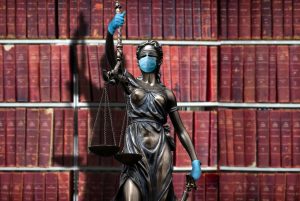 We have been carefully monitoring the litigation filed across the country, where businesses are seeking coverage for the business interruption losses arising from the government closure orders issued to address COVID-19. Some of the Closure Orders expressly refer to property damage, but it is important to actually plead facts that address the language in the relevant insurance policy and the insured losses sustained. In all the trial court decisions we have reviewed so far, the policies generally cover property coverage and related business interruption where there has been a “direct physical loss or damage” to the insured premises. Many also include separate civil authority coverage for business interruption losses sustained if the premises are ordered shut or partially shut down due to properties within a defined radius of the insured premises suffering from “covered causes of loss”—again, generally physical loss or damage. Some of the policies also include virus exclusions, but early motions to dismiss have focused on the question of whether COVID-19 has caused physical loss or damage to the premises insured.
We have been carefully monitoring the litigation filed across the country, where businesses are seeking coverage for the business interruption losses arising from the government closure orders issued to address COVID-19. Some of the Closure Orders expressly refer to property damage, but it is important to actually plead facts that address the language in the relevant insurance policy and the insured losses sustained. In all the trial court decisions we have reviewed so far, the policies generally cover property coverage and related business interruption where there has been a “direct physical loss or damage” to the insured premises. Many also include separate civil authority coverage for business interruption losses sustained if the premises are ordered shut or partially shut down due to properties within a defined radius of the insured premises suffering from “covered causes of loss”—again, generally physical loss or damage. Some of the policies also include virus exclusions, but early motions to dismiss have focused on the question of whether COVID-19 has caused physical loss or damage to the premises insured.
Correcting the Record on Insurance Industry Hucksters and Novel Coronavirus/COVID-19 Coverage
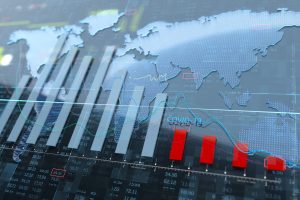 Businesses buy property insurance to protect their bottom line in the event that something bad results in lower sales or increased costs. Insurance companies seek to improve their bottom line by increasing sales and reducing their largest cost item, claim payments.
Businesses buy property insurance to protect their bottom line in the event that something bad results in lower sales or increased costs. Insurance companies seek to improve their bottom line by increasing sales and reducing their largest cost item, claim payments.
In their effort to improve sales, we see insurance companies rely on spokespeople. For example, Farmers Insurance Company has long engaged the talented actor J.K. Simmons to help sell insurance. His spots involve humorous and unexpected accidents that Farmers says it covered. For example, “Coupe Soup” shows a wave inundating a beachside SUV, while “Billy Goat Ruffians” depicts a Bighorn sheep crashing headlong into its reflection on the side of a pickup. Another spot depicts Mr. Simmons warning that the more you learn about coverage, the more you might find hiding in your coverage.
COVID-19 Business Interruption Litigation and Industry-Wide MDL Versus Insurer-Specific MDLs
With hundreds of cases now pending nationwide involving insurance coverage claims for business interruptions stemming from the COVID-19 pandemic, a federal panel has been considering the prospect of consolidating the litigation into one multidistrict litigation (MDL) to promote their efficient resolution. On August 12, 2020, the panel issued a decision ruling out a single nationwide MDL, but leaving open the possibility of smaller, insurer-specific MDLs.
In “COVID-19 Business Interruption Litigation May Be Consolidated for a Select Few,” David F. Klein examines this decision and its implications more closely.
Studio 417 Finds Potential Coverage for COVID-19 Losses Under the “Plain and Ordinary Meaning” of “Physical Loss or Physical Damage”
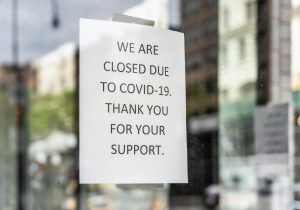
As the COVID-19 public health crisis continues to surge globally, insurers have closed ranks behind the position that commercial property policies are “not designed” to cover pandemic-related losses, including business interruption. But the various justifications they advance for this assertion often collapse under scrutiny of the relevant policy language. Insurers have taken an early stand on the threshold issue of whether the actual or threatened presence of coronavirus and/or COVID-19 can even trigger coverage as a matter of law, telling both their insureds and the courts that the virus’s presence does not constitute “physical loss of or damage to property,” the event typically required for property policies to respond.
Insurance Coverage for COVID-19 “Back to Office” Expenses
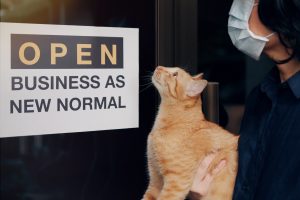 As businesses around the world continue to assess when and how to reopen their offices, the marketplace has become saturated with innovative “back to office” products and services. Whether a business chooses to invest in the latest body temperature scanner (such as Kogniz, a thermal security platform that uses AI to track fevers from a distance), room occupancy monitor (such as Density, which measures the depth and body patterns of people walking through doors to ensure social distancing is enforced), or UV light sanitizing stations and self-sanitizing keyboards (such as the Cubby and Defender), the decision may be influenced, in part, by the availability of insurance coverage for the additional investment. At a more basic level, businesses may provide workers with personal protective equipment (PPE), such as masks, gloves and hand sanitizer, or make changes to their workspaces such as social distancing signage.
As businesses around the world continue to assess when and how to reopen their offices, the marketplace has become saturated with innovative “back to office” products and services. Whether a business chooses to invest in the latest body temperature scanner (such as Kogniz, a thermal security platform that uses AI to track fevers from a distance), room occupancy monitor (such as Density, which measures the depth and body patterns of people walking through doors to ensure social distancing is enforced), or UV light sanitizing stations and self-sanitizing keyboards (such as the Cubby and Defender), the decision may be influenced, in part, by the availability of insurance coverage for the additional investment. At a more basic level, businesses may provide workers with personal protective equipment (PPE), such as masks, gloves and hand sanitizer, or make changes to their workspaces such as social distancing signage.
 Policyholder Pulse
Policyholder Pulse


